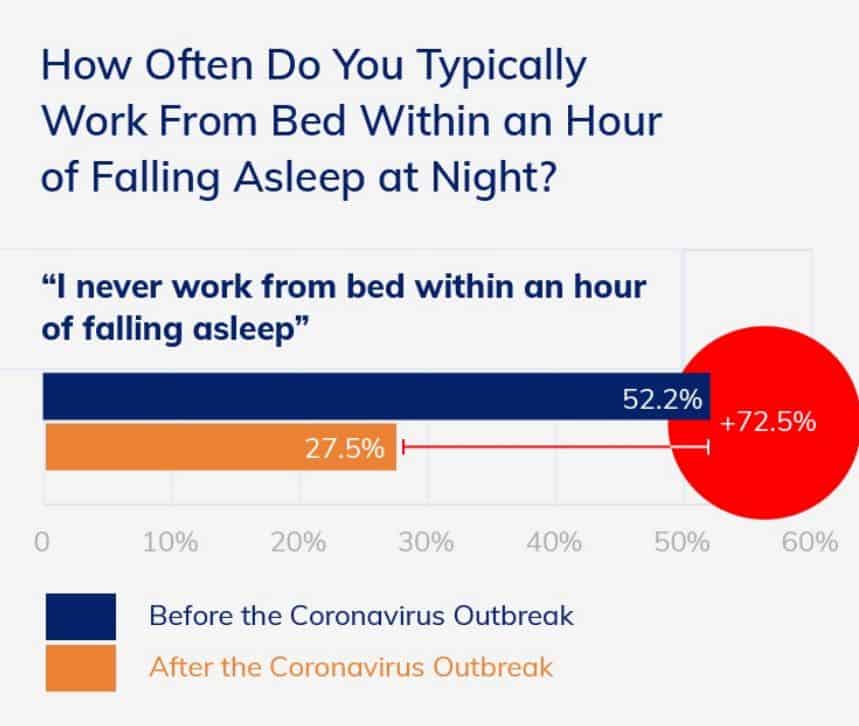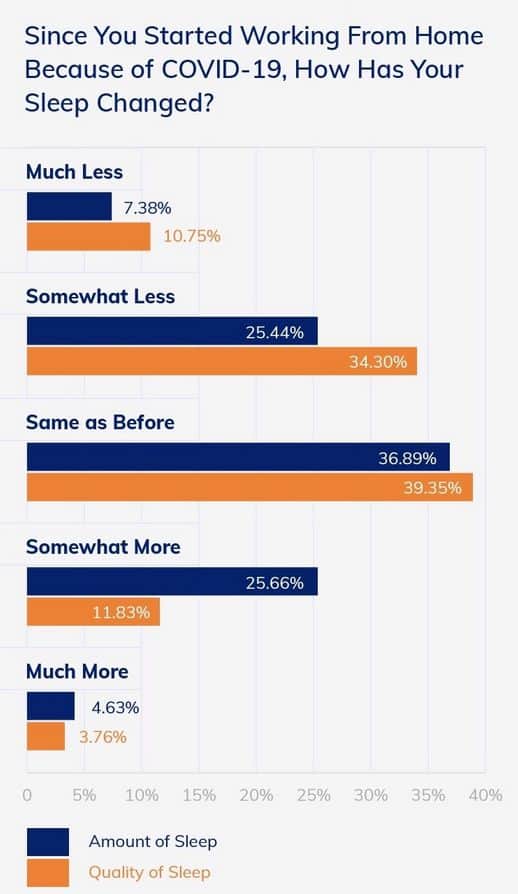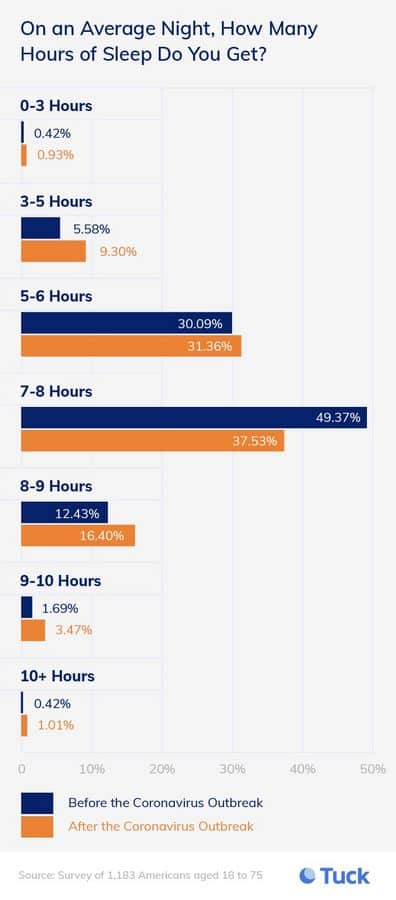According to a recent study, 72% of 1,000 Americans surveyed said they worked from bed at some point during the pandemic
You open your eyes when the alarm goes off and you jump out of bed to … go back to it. After having a coffee, of course. Teleworking has come into our lives stomping, and although Americans seem generally happy with this new way of reconciling work and personal life, in which we eat at home, avoid traffic jams and the living room table has become our office, is not without its dangers.
- Brief Anger Hampers Blood Vessel Function Leading to Increased Risk of Heart Disease and Stroke – New Study
- New Blood Test Pinpoints Future Stroke Risk – Study Identifies Inflammatory Molecules as Key Biomarker
- Enceladus: A Potential Haven for Extraterrestrial Life in its Hidden Ocean Depths
- New Experiment: Dark Matter Is Not As ‘DARK’ As All We Think
- Scientists in Fear of This New Predator From Red Sea Eating Native Species in Mediterranean
The first voices rose at the beginning of the pandemic, when they advised that, for the sake of our mental health, we should not work in pajamas. In other words, let us dress as if we were going to the office even if we were not going to leave our comfortable home. Not only are there people who didn’t follow this advice, but they’ve directly gotten used to working from bed. Do you know any who have confessed to you? Maybe it’s you?
You’re not alone, according to a November 2020 study, 72% of 1,000 Americans surveyed said they had worked from bed at some point in the pandemic. 1 in 10 reported spending “most or all of their workweek” (24 to 40 hours or more) in bed. In the UK, workers between the age of 18 and 34 are the ones least likely to have a proper desk and chair, which means they are more likely to end up working where they come to look for sleep at night.

Something is not right. Turning your bed into your workplace, no matter how good it looks on instagram, but it can trigger a number of mental and physical problems. Your neck, back, hips, and so on when they are on a soft surface that encourages them to collapse on it, and young people are particularly prone to these bad habits because they may not feel the tension immediately, but rather the pain will come when the damage is done. These ailments can include simple headaches and can also extend to permanent back stiffness, arthritis, and what’s known as neck pain, meaning pain in the bones, ligaments, and muscles of the neck that allow movement.

If for any reason you insist on working from bed, at least try to improve your posture, as if you were sitting in an upright chair, and avoid putting pressure on any part of your body. To do this, it is a good idea to roll up a pillow or blanket and place it on your back, as lumbar support, and put another one under your knees. You should also try to place the screen at eye level or higher. And, of course, don’t write upside down.

When you spend the day lying in bed working you are not only destroying your kidneys, you are also not contributing to worsening your productivity or sleep habits. Sleep specialists recommend that the bed be used only for sleeping, making love or when you are sick. If you use it to work, eat or play video games, your brain will gradually assimilate that it can be used for everything, and that association will lead you to sleep worse. This is why sleep hygiene is so important.
- Brief Anger Hampers Blood Vessel Function Leading to Increased Risk of Heart Disease and Stroke – New Study
- New Blood Test Pinpoints Future Stroke Risk – Study Identifies Inflammatory Molecules as Key Biomarker
- Enceladus: A Potential Haven for Extraterrestrial Life in its Hidden Ocean Depths
- New Experiment: Dark Matter Is Not As ‘DARK’ As All We Think
- Scientists in Fear of This New Predator From Red Sea Eating Native Species in Mediterranean
Doing this for a year, or any long period of time could lead to insomnia or something called a circadian rhythm disorder. And although it is possible that working from bed is not necessarily something you can change, or want to change, it is important to keep in mind that your body and brain may not feel the consequences at this time but in the future. And if the pandemic has taught us anything, in terms of health, prevention is better than cure.
